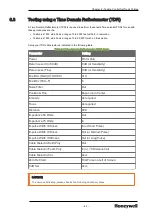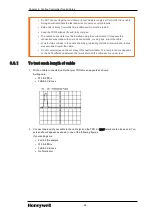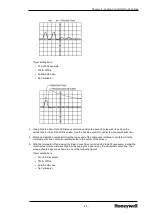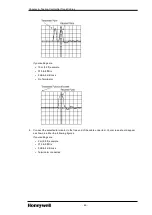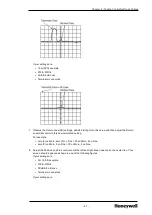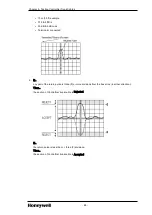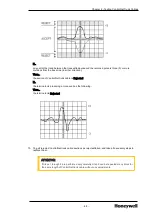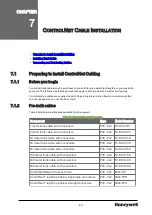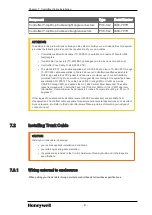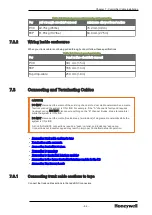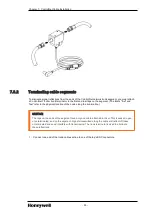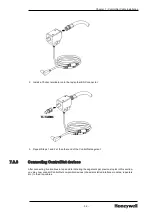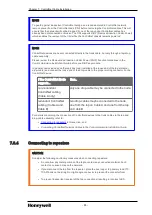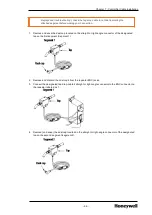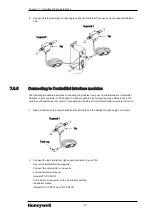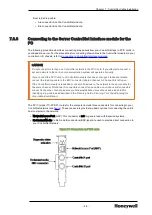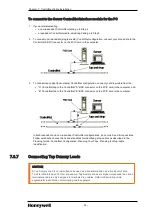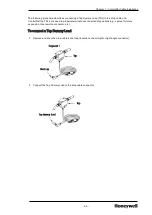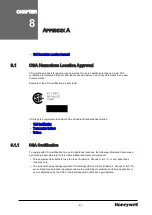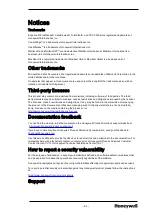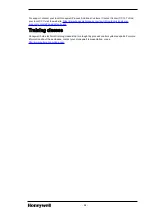
5. Connect this tap's straight or right-angle connector to the BNC connector on the repeater labeled
as 2.
7.3.5
Connecting to ControlNet Interface modules
The following procedure describes connecting drop-cables from your ControlNet taps to ControlNet
modules in your controller or I/O chassis. For the procedures for connecting drop-cables to the PCIC
card in your Experion server, refer to
Connecting to the Server ControlNet Interface module for the PC
.
1. Remove and save the drop-cable's dust cap (located on the straight or right-angle connector).
2. Connect the tap's straight or right-angle connector to your CNI.
If your ControlNet module supports…
Connect the drop-cable…s connector…
non-redundant media only
(models TC-CCN014)
to the Cable A connector on the ControlNet module.
redundant media
(models TC-CCR014 and TK-CCR014)
- 57 -
Chapter 7 - ControlNet Cable Installation

